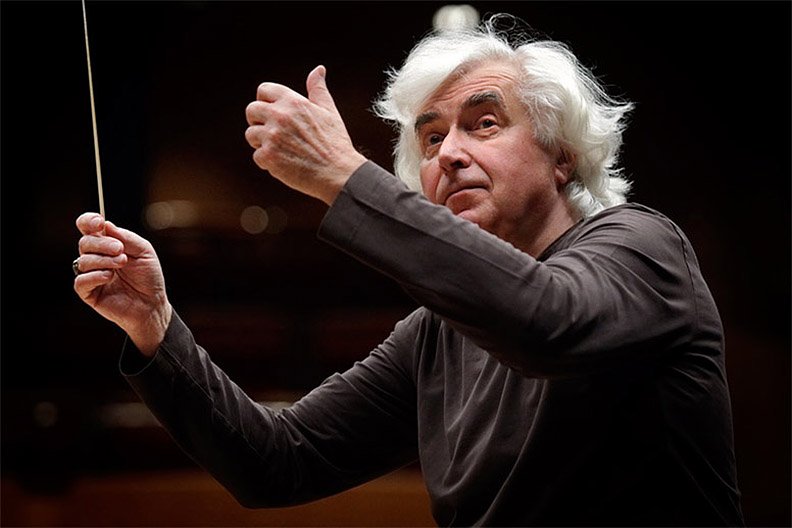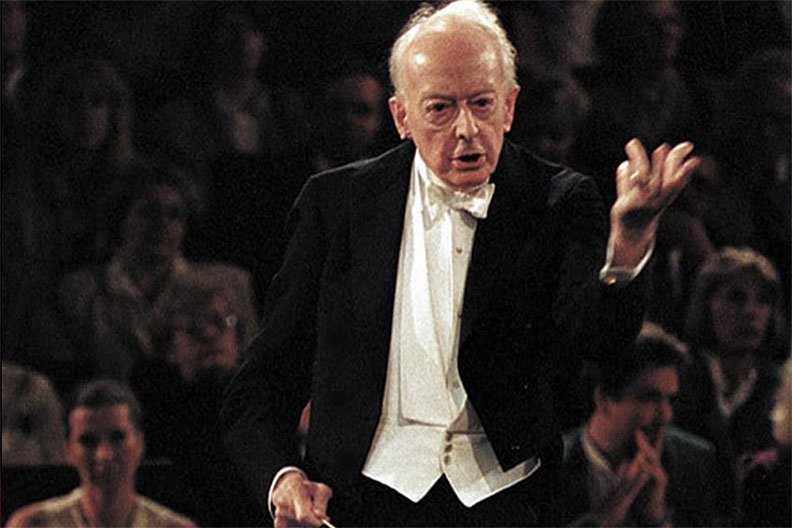Conductors

Andrés Orozco-Estrada
Designated Chief Conductor
Energy, elegance and spirit - that is what particularly distinguishes Andrés Orozco-Estrada as a musician. After a wonderful collaboration with the Orchestra Sinfonica Nazionale della Rai in May 2022, Andrés Orozco-Estrada is appointed the new principal conductor of the Rai Orchestra from the 23/24 season, whose 30th anniversary he will celebrate in October 24 with two festive concerts in Turin. From the 2025/26 season, he will take up the position of GMD of the city of Cologne and Gürzenich Kapellmeister. Orozco-Estrada attaches great importance to inspiring all the people of Cologne with music and for music, and to representing and presenting Cologne as a city of music internationally. This season, a series of performances of Carmen will mark his opera-debut as GMD-designate. Right at the beginning of the 24-25 season, Orozco-Estrada makes his debut with performances of ‘Le Nozze di Figaro’ at the Semperoper Dresden. Further debuts will take him to the NHK Symphony Orchestra in Tokyo, the KBS Symphony Orchestra in Seoul and the Spanish National Orchestra (OCNE) in Madrid. Orozco-Estrada has been re-invited to the Royal Concertgebouw Orchestra, the Chicago Symphony Orchestra, the Staatskapelle Dresden, the Orchestre National de France, the Gothenburg Symphony Orchestra, the Bamberg Symphony Orchestra, Swedish Radio, the Budapest Festival Orchestra, the Rotterdam Philharmonic Orchestra, the Munich Philharmonic Orchestra and the radio orchestras of SWR, WDR and the DSO Berlin. He will also return to the hr-Sinfonieorchester Frankfurt (Principal Conductor 2014-2021) and the Houston Symphony Orchestra (Music Director 2014-2022). Born in Medellín (Colombia), Andrés Orozco-Estrada began his musical education by playing the violin, receiving his first conducting lessons at the age of 15. In 1997 he moved to Vienna, where he was accepted into the conducting class of Uroš Lajovic, a student of the legendary Hans Swarowsky, at the renowned Hochschule für Musik und Darstellende Kunst. Since October 2022, Orozco-Estrada has been professor of orchestral conducting at the Vienna University of Music and Performing Arts.
Artistic Partnership
Sakari Oramo
Chief Conductor of BBC Symphony Orchestra, Conductor Laureate of Royal Stockholm Philharmonic Orchestra, Honorary Conductor of Finnish Radio Symphony Orchestra, Artistic Partner with Gürzenich-Orchester Köln a guest conductor at the highest international level and a prolific recording artist, Sakari Oramo’s performances combine crystalline structural cohesion with authority, elegance and passion.
Sakari Oramo celebrates the extension of his contract as Chief Conductor of the BBC Symphony Orchestra, leading them up to their centenary year in 2030 with a captivating season including the UK premiere of Kaija Saariaho’s HUSH, a focus on works by Grażyna Bacewicz, Britta Byström, and Dora Pejačević, and Busoni’s Piano Concerto with the BBC Symphony Orchestra, Berliner Philharmoniker, and Orchestre national de France.The 2024/25 season sees Oramo, newly announced as Artistic Partner with Gürzenich-Orchester Köln, embark on their tour to Japan. He returns to NDR Elbphilharmonie, Gewandhausorchester Leipzig and Finnish Radio Symphony Orchestra amidst his ongoing collaborations with BBC Symphony Orchestra. Notable engagements from previous seasons include those with Wiener Symphoniker, Tokyo Symphony Orchestra, Staatskapelle Dresden, Boston Symphony Orchestra, New York Philharmonic and Orchestra dell’Accademia Nazionale di Santa Cecilia.
Throughout his career, Oramo has held numerous prestigious positions; Music Director of City of Birmingham Symphony Orchestra from 1998-2008, Chief Conductor of Finnish Radio Symphony Orchestra from 2003-2012, Principal Conductor of West Coast Kokkola Opera from 2004-2018, and Chief Conductor of Royal Stockholm Philharmonic Orchestra from 2008-2021. An accomplished violinist, Oramo was originally concertmaster of Finnish Radio Symphony Orchestra.
Oramo continues to champion new and rarely performed works with BBC Symphony Orchestra, conducting works by Carlos Simon, Kaija Saariaho Dora Pejačević, Grażyna Bacewicz, Doreen Carwithen and Grace Mary Williams. Oramo is a regular conductor at the BBC Proms – during the summer of 2024, he presented several Proms with BBC Symphony Orchestra including The Last Night of the Proms and a collaboration with the Sibelius Academy Helsinki and Royal College of Music London alongside performances of Holst’s Cloud Messenger, Kaija Saariho’s Mirage and An Alpine Symphony by Richard Strauss.
Recent additions to Oramo’s extensive discography include recordings of Dora Pejačević’s Piano Concerto and Symphony in F-sharp minor with BBC Symphony Orchestra, works by Ravel with Royal Stockholm Philharmonic Orchestra, and Rued Langgaard’s Symphony No.1 with Berliner Philharmoniker. He has also recorded Sibelius’s complete symphonies with City of Birmingham Symphony Orchestra, Nielsen’s and Schumann’s complete symphonies with Royal Stockholm Philharmonic Orchestra, and many works by Kaija Saariaho and Magnus Lindberg with various orchestras. Successes across his catalogue include BBC Music Magazine’s Orchestra Award for Nielsen: Symphonies Nos. 1 & 3 with Royal Stockholm Philharmonic Orchestra, a Gramophone Award in 2019 for Laangaard: Symphonies Nos. 2 & 6 with Wiener Philharmoniker and soprano Anu Komsi, and a 2020 International Classical Music Award for Busoni: Piano Concerto with Boston Symphony Orchestra and Kirill Gerstein.
Honorary conductors

Dmitrij Kitajenko
Dimitri Kitaenko and the Gürzenich Orchestra Cologne have been associated for decades of artistic exchange based on mutual appreciation and respect. Since the Russian conductor first conducted the Gürzenich Orchestra in 1987, their joint concerts and multi-award-winning CD productions have enabled a wealth of experience that makes each performance a special experience. The focus of the collaboration is on the Russian romantic repertoire that Kitaenko, who was born in Leningrad in 1940, can authentically interpret like no other conductor – highly differentiated, unsentimental and deeply moving. In addition to his work with the Gürzenich’s principal conductors, the orchestra’s relationship with Kitaenko was so formative that they appointed the Russian maestro honorary conductor in 2009.
Many of the CD recordings the orchestra made with him are considered reference recordings – notably, the cycle of Dmitri Shostakovich’s fifteen symphonies, which received an ECHO Klassik in 2005 and the MIDEM Classical Award in 2006, among others. This was followed by complete recordings of Sergei Prokofiev’s, Sergei Rachmaninoff’s and Peter Tchaikovsky’s symphonic works, which won many awards, complemented by numerous other works by the composers and, in Tchaikovsky’s case, the one-act opera Iolantha. In recent years, Kitaenko has presented virtually unknown works from Russia at his Cologne concerts, such as Prokofiev’s Alexander Nevsky cantata and Modest Mussorgsky’s Songs and Dances of Death for bass and orchestra, Aram Khachaturian’s Spartacus ballet suite and Sergei Taneyev’s John of Damascus cantata. In 2015 Kitaenko conducted the Gürzenich Orchestra for the first time with music by Jean Sibelius; the CD production of the 2nd Symphony, made in parallel, received the ICMA Prize 2019 and the Supersonic Award from Pizzicato magazine. Most recently, he recorded Alexander Scriabin's 2nd Symphony and Le Poème de l'extase with the Gürzenich Orchestra.
CDs with Dmitrij Kitajenko

Günter Wand (1912-2002)
The Gürzenich Orchestra has had more than a few world-class artists among its chief conductors. One of the most eminent is Günter Wand, who was appointed First Kapellmeister at the Cologne Opera in 1939 and was General Music Director and Gürzenich-Kapellmeister from 1946 to 1974. Under his baton, the Gürzenich Orchestra developed into an outstanding ensemble, demonstrated not only by excellent performances of the classical and romantic repertoire, but also in the field of contemporary music. A great number of world premieres and German premieres stands testimony to this fact, for example Bernd Alois Zimmermann’s Concerto for Orchestra (1946), Wolfgang Fortner’s Concerto for Cello and Orchestra (1951) and works by Olivier Messiaen, to name just a few. Wand’s strict concept of authenticity was legendary: when asked as a young conductor how he would interpret Beethoven’s Symphony No. 9, more like Arturo Toscanini or more like Wilhelm Furtwängler, his answer was: »Like Beethoven.« During later years, he concentrated almost exclusively on works of the classical and romantic era; his recordings of Bruckner and Schubert symphonies from the 1980s are still considered benchmarks today.
